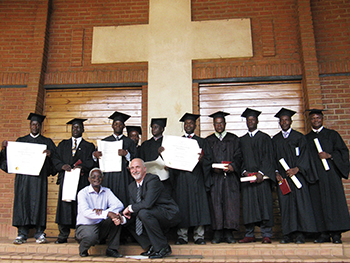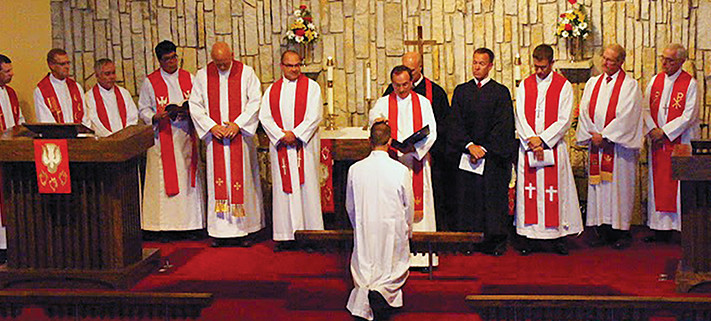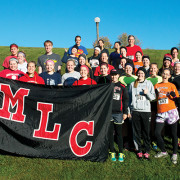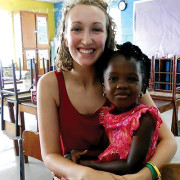Wisconsin Lutheran Seminary
So here I am. Outside the door with a box of books to bring into my office. I get to the door and realize that my key doesn’t work. So this is what being a pastor is like: my secretary needs to let me in on my first day. But then I heard it: “Good morning, Pastor.”
Whoa. Is she talking to me? She called me “Pastor.”
And it kept happening. It’s as if my first name has been replaced by a title. After all these years—I studied, and worked, and memorized, and sacrificed, and now, finally, I’m a pastor.
Then one day I overheard someone talking about me. They weren’t gossiping, and I don’t even remember what the conversation was about, but they said something I wasn’t ready for: “He’s my pastor.”
And it dawned on me. This is it. I didn’t want to be a pastor; I wanted to be their pastor.
Rev. John Raasch,
Wisconsin Lutheran Seminary class of 2014

Since 2010, the Greater Africa Theological Studies Institute (GRATSI) has been jointly administered by the Lusaka Seminary and Wisconsin Lutheran Seminary. This program is designed for pastors in the Lutheran Church of Central Africa who qualify to serve in leadership positions. In May 2015, the first ten participants of GRATSI received their diplomas. Also pictured is Wisconsin Lutheran Seminary Professor Kenneth Cherney (front, right).
Wisconsin Lutheran Seminary may be a small seminary located in Mequon, Wis., but it is making a global impact.
Through its Pastoral Studies Institute, the seminary offers classes for non-traditional students—including men from different cultures and English-speaking second-career students. Since 2003, more than 30 men have received diplomas and are now serving across the United States and around the world.
The Pastoral Studies Institute also helps students from all over the world attend seminary classes in Mequon. Whether for a week, a month, or a school year, these students grow from spending time in the classroom with like-minded students. In addition, the traditional students are inspired by studying next to those who live in places where being a Christian can bring concerns for their safety.
Becoming a global seminary means not only serving those around the globe but also preparing traditional students to serve all people. Current seminary student Peter Janke embodies the school’s global awareness and spirit. In addition to Greek and Hebrew, Janke is learning Spanish and Mandarin. “I would like the ability to evangelize almost anyone in the world,” he says. “If I know English, Spanish, and Chinese well enough, I know that I can speak to more than half of the world. I could tell anyone about Jesus.”





